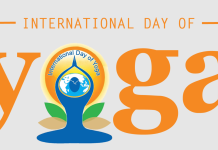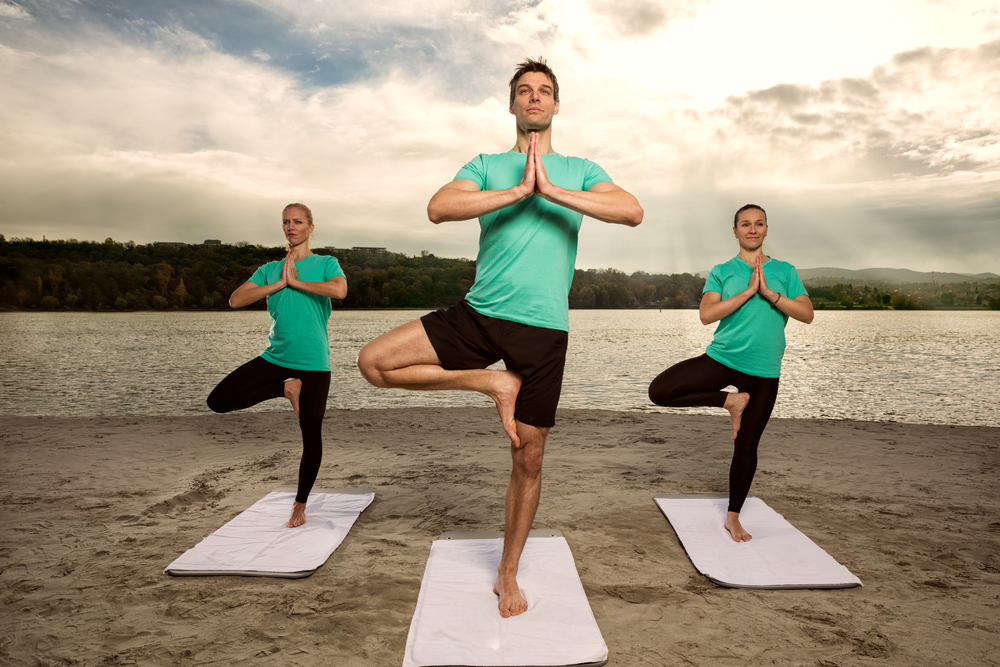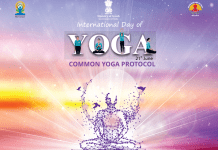21 Well-Being Secrets Doctors Want Women To Know
When it comes to health, all women welcome words of wisdom from those in the know. Leading women doctors and health experts pass on their must-know advice on how to stay healthy, whatever your age and nationality…
- NO PAINKILLERS
Most headaches are caused by simple things such as skipping meals – breakfast is a big one – not drinking enough water, too little sleep, insufficient exercise, or stress. It’s your body’s way of telling you that you’re not addressing its basic needs. Keeping a headache diary can help you identify the cause and do something about it.
- GET A FLAT STOMACH
‘Occasional gym workouts aren’t the best route to a flat stomach – abdominal bracing throughout the day is much more effective,’ say physiotherapists. ‘Pull your navel back into your spine as far as you can, then release it 70 percent and keep holding it as you go about your daily business. Breathe normally and ensure that your body is relaxed.’
- IT’S THE HORMONES
‘Be careful about drinking in the days before your period some woman seem to be more susceptible to the effects of alcohol pre-menstrually and it may also affect your mood adversely,’ says Dr Sarah Jarvis.
- BEWARE OF EXTRAS
‘Woman who graze (Snack often) underestimate the number of calories they eat by anything from 500 to 1,000 calories a day,’ says Dr Dawn harper, a GP. ‘I ask people to keep a really honest food diary, writing down everything from nuts to leftover fish fingers. People are surprised once they identify all those little extras.’
- CUT DIABETES RISK
‘If you’re too heavy, losing just five to 10 percent of your weight can cut your risk of type 2 diabetes by 58 percent, even if you’re at increased risk because of family history of diabetes,’ says a diabetes specialist. ‘Get active and you can cut your risk even more. These changes could help you live longer. Diabetes can be debilitating it only causes blindness in working age people, but can also shorten your life by as much as 10 years.’
- GET CHECKED FOR CELIAC DISEASE
‘Many of the symptoms – such as chronic or intermittent diarrhoea, constipation and abdominal bloating – are similar to irritable bowel syndrome, so it may be worth asking your doctor for a blood test, as we know there are thousands of celiac sufferers who remain undiagnosed,’ says consultant gastroenterologist. ‘There may also be other symptoms such as tiredness, anemia, headaches, mouth ulcers and recurrent miscarriage.’
- EAT WELL FOR YOUR BONES
‘Fruit and vegetables leave an alkaline residue in your body and it’s this that may help bones,’ says our nutritionist Dr Geeta Seth. ‘your body likes to keep your blood alkaline, but high-protein foods such as meat and hard cheese create acidity, which means minerals are drawn from the bones to restore the alkaline balance. Fruit and vegetables may help prevent this loss of bone mineral by creating a more alkaline environment – they’re also a good source of potassium and magnesium, which may have a direct effect on bone cells.’
- FIX YOUR DRY FEET
If you have dry, scaly skin on your feet that doesn’t respond to good emollient creams, the cause may be fungal. In most of the cases of Athlete’s Foot, the skin is dry and flaky all over, so try a treatment for Athlete’s Foot. Find moisturizing creams that contain urea. Using them helps break down hard skin and is brilliant for dry areas.
- MAKE HIGH HEELS MORE COMFORTABLE
High heels usually hurt the balls of your feet, even if you just wear them for a short time, but you can make them more bearable by using insoles,’ says podiatrist Lorraine Jones. ‘They’re designed to help reduce pressure on the ball of your foot and improve the way in which your heel strikes the ground – creating a bit more stability and reducing leg and back fatigue. You can use them in any type of high heel and swap them from shoe to shoe.’ (Try Dr Scholl’s – they have a variety of insoles on offer and is easily available at most reputed medicine stores).
- DON’T REST AN INJURY
‘However tempted you are to put your feet up when you hurt a muscle or tendon – don’t. Stay active,’ says physiotherapist Kerri Norman. ’The latest evidence shows that unless the pain is sharp or quite severe, doing a modified form of your normal exercise will produce the most rapid healing.’
- KEEP SORE JOINTS MOVING
People worry activity will cause more pain, but in fact, exercise reduce it. And if you need painkillers, take them. People think it will make them more prone to injury, but it is better to control the pain and keep moving.
- COLD WORKS ON SPRAINS
‘It may feel comforting to grab a hot water bottle when you injure yourself, but it can delay healing,’ says physiotherapist Kerri Norman. ‘If you apply heat, your body reacts by contracting the blood vessels, drawing oxygenated blood and healing white blood cells away from the area. But if you apply a cold pack for up to 20 minutes, it prompts your body to pump up blood into the injured area, that speeds up healing.’
- PRESS DOWN ON YOUR PUBIC BONE
If you’re desperate for the toilet, that’s the most effective way to prevent leaking.
- BREAST PAIN IS NORMAL
‘In most cases breast pain is simply sign that the breasts are working normally,’ says consultant surgeon. ‘Although woman are often told they will get pain on both sides and then worry if it’s one-sided, most get one-sided pain, normally in the bigger breast. Breasts are never the same size – your larger breast will be on the same side of your body as your larger foot and hand. Because breast pain isn’t caused by disease I’m reluctant to recommend medicine treatment. But some woman find high-dose evening primrose oil and properly fitted bra helpful.’
- ANTI-DEPRESSANTS AREN’T ADDICTIVE
‘When someone comes to me with asthma or diabetes they’re perfectly happy to take medicine to treat it, and depression should be no different it’s an illness that needs treatment and anti-depressants are categorically not addictive,’ says our psychiatrist. ‘In fact, they don’t even create an artificial high, as many people think. They work by ensuring that your body can operate effectively by enabling the neurotransmitter serotonin – which passes messages between nerve cells – to hang around in the body for longer. It’s thought that lack of serotonin is a key factor in depression.’
- PROCTECT YOUR HEART AFTER MENOPAUSE
Your risk of heart disease increases four fold in the 10 years after menopause, so have your cholesterol, blood pressure and blood sugar checked.
- CHECK OUT PERSISTENT SYMPTOMS
If you’re over 50 and diagnosed with irritable bowel syndrome for the first time you should get a second opinion. Breast cancer shouts, while ovarian cancer only whispers, so if you have persistent pelvic or abdominal pain, bloating or increased tummy size, trouble eating, or you feel full quickly and symptoms are persistent, see your doctor. It doesn’t matter that there’s no history of ovarian cancer in your family – 90 percent of cases aren’t hereditary. And don’t worry about bothering your doctor, that’s what they are there for.
- CHEW GUM
Hormones affect the flow of saliva and one of the side-effects of menopause can be a dry mouth,’ says dental surgeon Dr Moorjani. ‘Saliva contains substances to combat plaque bacteria, so a lack of it increases the risk of decay, gum disease and bad breath. Sip water, or chew gum to simulate saliva flow.’
- MUSCLE IT OUT
Between the ages of 40 and 80 most woman lose half their muscle strength and mass. It’s not inevitable if you do strength training every day. Try slow sit-to-stands. Take at least 30 second to rise and longer to sit at least five times during TV adverts. Do five slow bicep curls with the heaviest item in your shopping bag, and toe rises while washing up. Rise on to your toes, stay there for five seconds and lower again. Then repeat, lifting your toes towards your nose at the same time.
- TREAT SNORING
Snoring, in many cases, is a symptom of sleep apnea – a condition that can exacerbate diabetes and high blood pressure, and raise the risk of heart disease and stroke – and it is far more common among woman after menopause. Did you know that a specially trained dentist can give your proper with treatment for this.
- BLADDER CURE
If you get recurrent cystitis-type symptoms and you’re post-menoopausal, the cause might be estrogen deficiency,’ says an associate specialist gynaecologist. ‘Menopause does make you more vulnerable to cystitis, but lack of estrogen can also adversely affect your bladder, causing an urgency to go and discomfort when you do. If you have these symptoms and there’s no infection, a vaginal estrogen cream can help control bladder symptoms. These creams are low dose and concentrated in the vagina, and don’t circulate throughout the body, so they are suitable for most woman who can’t or don’t want to take HRT.’





